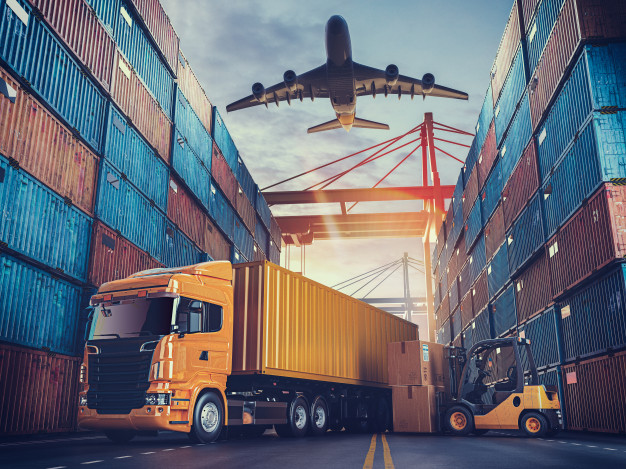The transportation and logistics industry in Australia employs almost half a million people in fields including trucking, warehousing, shipping, and stevedoring.
Whether you oversee a national fleet, a Perth-based courier service, an international shipping company, or a local warehouse, your role in Australia’s supply chain is critical. Thus, making sure your business is protected is essential.
Insurance for transport and logistics is essential for continuous motion. If you have this insurance, accidents and lawsuits won’t be able to bankrupt your business.
If you’re curious about the ways in which specialised transportation and logistics insurance might help reduce the likelihood of financial loss due to unexpected events, we invite you to keep reading.
Learn About Logistics Insurance
Vehicles, goods, and employees involved in moving and storing almost anything may all benefit from comprehensive transport and logistics insurance coverage tailored to the needs of the transporting and storing business. Due to the varied nature of the business and the individuality of each firm, there is no one correct response.
Insurance for shipping and warehousing operations will seem quite different if you’re in the mining sector as opposed to the storage business. Knowing the ins and outs of a certain industry and the hazards that come with it is essential for obtaining the best insurance policy possible.
It’s important to look closely at the particulars of the company when thinking about insurance. Ask the appropriate questions, and the necessary information will let us decide whether or not to suggest a change to your agreement that would reduce the unnecessary risk for your company.
Single-trip insurance policies are available as an alternative to annual policies. Having a single transit insurance policy from the moment an item is taken out of storage until it reaches its ultimate destination is the norm. Despite the fact that annual insurance is the most cost-effective and comprehensive option for most businesses, single-trip policies do exist.
Who Needs Insurance?
Shipping and logistics insurance is not sector-specific.
Insurance for transport and logistics is useful for more than just the transportation and logistics industries, despite what the name would indicate.
The following organisations are covered by this kind of insurance:
- Mining
- Earthmoving
- Road Transport
- Rail Transport
- Marine Cargo
Transport and logistics insurance is necessary whenever goods, raw materials, or equipment are moved, stored, exported, or loaded. More and more businesses will benefit from this kind of insurance as the sector grows.
Why Was It Made?
Customised transport and logistics insurance protects both the vehicle and the goods being transported, as well as the drivers who are responsible for their safe delivery. Every policy is tailor-made to meet the specific requirements of the industry and the policyholder.
Most policies for transportation and logistics protect against the following risks:
- Losses incurred by automobiles due to things like accidents and vandalism
- Negligent handling of stock during loading and unloading
- Intentional or unintentional damage
- Disasters such as fires, floods, and lightning strikes
Complete packages include not only the minimum insurance needed to meet regulatory requirements but also any additional coverage necessary to reduce the financial fallout of an accident.
Assurance is required by law to protect employees in the case of a disability that prohibits them from working, such as illness or injury. Claims for physical injury, wrongful death, and property damage sustained by a third party are covered by this kind of insurance. Transportation and storage companies need this all the time.
Losses, damage, or delays in delivery are all covered by the “carrier’s liability” insurance policy. Trucks, trailers, ships, and freight trains are all examples of the types of vehicles and fleets that are covered by commercial motor insurance.
Port authorities and other enterprises that rely on maritime transit may get the specialised protection they need via marine cargo insurance, which is offered by a number of different companies. Coverage for hired or purchased machinery used for lifting and transporting goods. Having industrial special risk insurance protects your business’s most valuable asset, the building itself, in the event of disasters like fire, flood, or theft. Warehouses and freight forwarders may also get specialised liability insurance.
What Are Its Limitations?
Common exclusions in logistics and transportation policies include:
- The decline in the value of the market
- Negative impacts of transportation delays
- Driver’s belongings were destroyed as a result of the conflict (in some cases)
- Each insurance plan has its own list of things and situations that aren’t covered.
Conclusion
You can tailor insurance policies to your specific needs to always make sure to provide the most thorough protection at the most reasonable rates. Protect yourself and your business through unforeseen circumstances or incidents when you have logistics insurance you can turn to and trust. You can have more coverage when you have pressing needs that need to be taken care of immediately. Professionals design your transportation and insurance services to meet your specific requirements, guaranteeing full protection without any surprise costs.
Meta Description
Always be safe, secure, and ready when unforeseen circumstances arise. Trust logistics insurance for your needs when you encounter sudden pressing matters.
Primary keyword: logistics insurance

